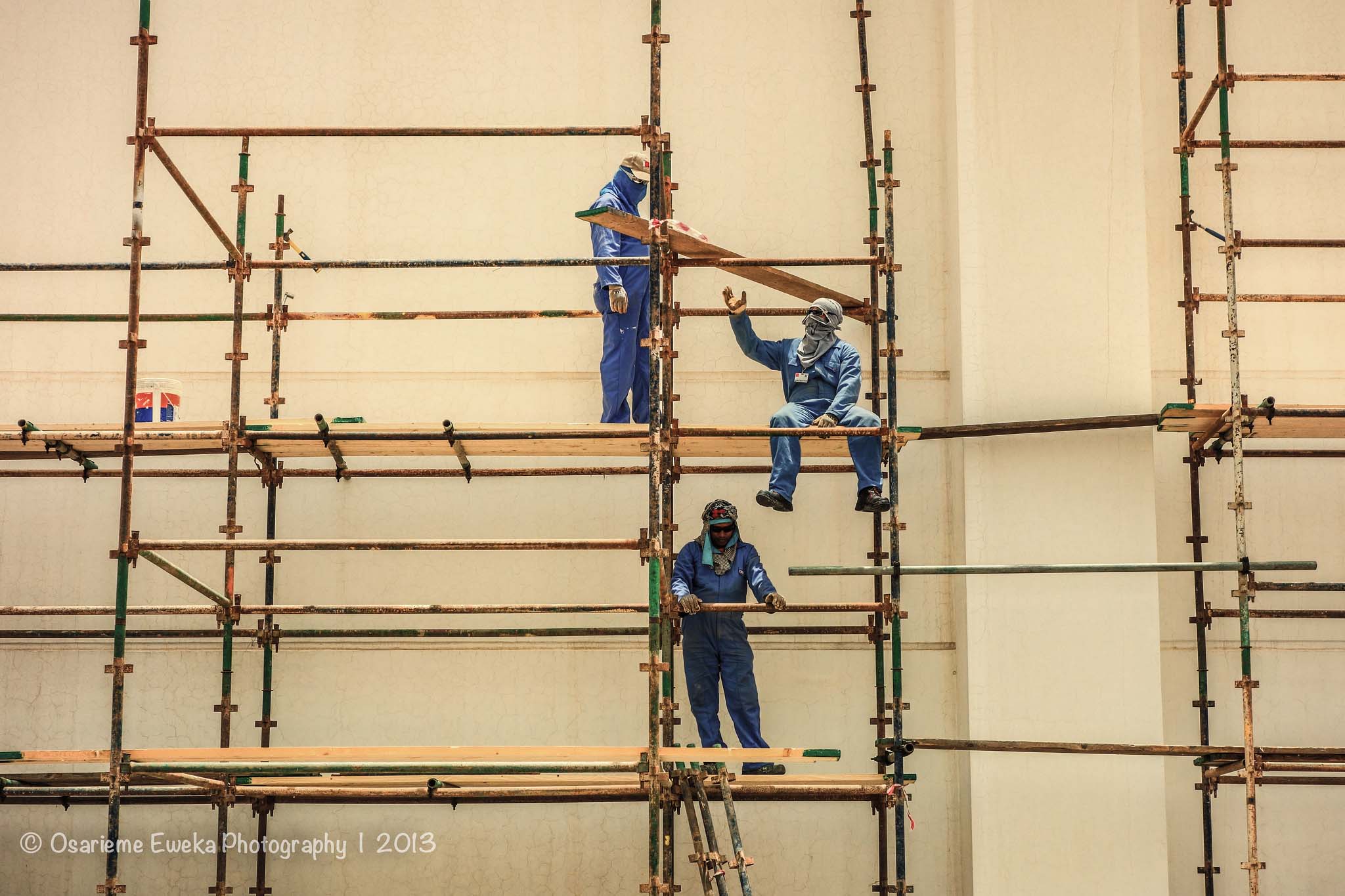
In a development that state planners are calling “promising,” the percentage of unskilled laborers in Qatar has dropped to its lowest level in nearly seven years.
Local authorities have long called for highly educated expats to make up a larger share of Qatar’s foreign workforce as a way of modernizing the economy.
According to a wide-ranging economic update released last week, unskilled workers made up 19.6 percent of the non-Qatari labor force last year, down from 21.4 percent in 2014.
At the same time, the share of semi-skilled employees – such as machine operators and craftworkers – climbed from 47.4 percent to 51.6 percent.

The Ministry of Development Planning and Statistics (MDPS) previously defined unskilled workers as those employed in “elementary” occupations.
According to the International Labour Organization, that can include cleaners, garbage collectors and people working in construction, agriculture and fishing.
In its report, the ministry said:
“The country’s emphasis on infrastructure building has so far favoured lower skilled workers. The bulk of foreign workers in Qatar do not have tertiary qualifications.
Promisingly, however, the share of semi-skilled workers hit a peak in 2015, while the share of unskilled workers stood at the lowest level since data collection began in 2008.”
That said, the number of both skilled and unskilled workers here continue to number in the hundreds of thousands and account for a significant proportion of the population.
Lacking skilled labor
Meanwhile, the rise in the proportion of semi-skilled workers appears to have come at the expense of more skilled individuals such as clerks, service-sector employees and salespeople.
The country is also suffering from a dearth of highly skilled individuals, a category that includes managers, technicians and other specialists.

“(The) share of highly skilled workers in 2015, envisioned to be at the forefront of the knowledge-based economy, was the lowest since 2011,” the report said.
World Cup looms
Barring a dramatic turnaround this year, it looks like Qatar will fall short of its goal to significantly restructure its labor force by 2016.
The country’s National Development Strategy (NDS) calls for 23 percent of its foreign workforce to be highly skilled by the end of this year.
In 2015, that number stood at slightly more than 14 percent.
In fairness to government planners, the strategy was prepared prior to Qatar being named the host of the 2022 World Cup at the end of 2010.

Tournament deadlines have kicked off a massive construction boom that necessitated a huge influx of foreign laborers.
Still, the number of construction workers in Qatar is expected to peak next year as some large infrastructure projects approach completion.
And while the country’s short-term focus is on preparing for the World Cup, the MDPS said Qatar needs to discourage companies from relying on cheap labor:
“Employers have taken full advantage of an open-door immigration policy that makes an almost inexhaustible supply of unskilled and semiskilled labour available at international wage rates,” the development strategy states.
“Without reducing the supply of low-cost workers or increasing the attractiveness of capital investments and high-skilled labour, the economy will struggle to reach its economic diversification aspirations.”
Cheap labor pitfalls
According to economists, importing a virtually endless supply of expats from less developed countries gives local companies little incentive to enhance their productivity and, in turn, compete globally.

For example, a manufacturing firm may decide that it’s cheaper to hire 10 people to work on its assembly line rather than purchase modern machinery that can perform the same task.
As it stands, the status quo also makes it harder to find suitable jobs for highly educated and trained Qataris, according to the development strategy.
“Possessing those skills does not guarantee that there will be jobs (for nationals) – particularly if employers can still orient their recruitment and production strategies around the availability of a large pool of cheap, unskilled immigrant workers,” it said.
Another reason to hire more highly paid expats is because they have more purchasing power.

In a recent op-ed published in the Times of Oman, columnist Sami Mahroum argued that wealthy foreign residents give GCC states an “expat dividend” as the demand for consumer goods and services spurs economic growth.
To help transition Qatar’s economy to a higher-skilled workforce, the NDS suggested making it more expensive for employers to hire low-income expats.
This could be done by forcing employers to shoulder the health insurance costs of their staff and rolling out a minimum wage, the document said.
While the government appears to be considering the former idea, the notion of a minimum wage has been ruled out by officials.
Thoughts?







